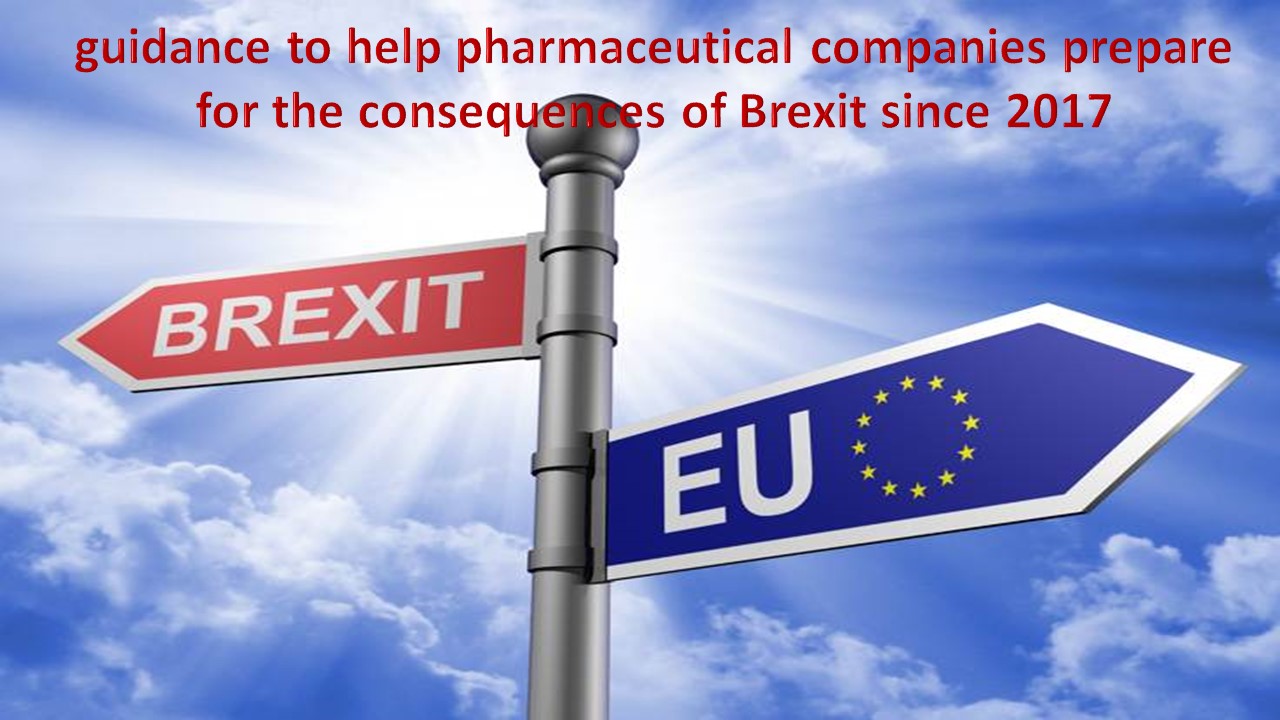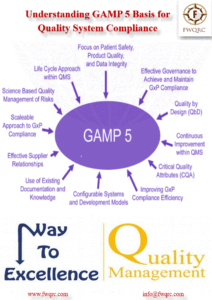The European Medicines Agency (EMA) and the European Commission have been providing guidance to help pharmaceutical companies prepare for the consequences of Brexit since 2017. This includes companies responsible for human medicines and for veterinary medicines, both centrally and nationally authorized.
The United Kingdom of Great Britain and Northern Ireland (UK) left the European Union (EU) and the European Atomic Energy Community as of 31 January 2020. The agreement regarding terms and conditions for the withdrawal of the UK from the EU and the European Atomic Energy Community (the ‘Withdrawal agreement’) was concluded on behalf of the Union by Council Decision (EU) 2020/135 and entered into force on 1 February 2020, with a transition period up to and including 31 December 2020. During the transition period, the Union law continued to apply to and in the UK.
As of the end of the transition period, the EU rules in the field of medicinal products, in particular Regulation (EC) No 726/2004, Directive 2001/83/EC, and Directive 2001/82/EC, no longer apply to the United Kingdom. This has in particular the following consequences:
ISSUES RELATED TO MARKETING AUTHORISATION, MARKETING AUTHORISATION PROCEDURES:
- Marketing authorization holder, applicant: According to Article 2 of Regulation (EC) No 726/2004, the marketing authorization holder must be established in the Union.
- Reference medicinal product (generic or hybrid application): A generic or hybrid application in accordance with Article 10 of Directive 2001/83/EC or Article 13 of Directive 2001/82/EC refers to information that is contained in the dossier of a reference medicinal product (RefMP) that is or has been authorized in the Union.
- Bioequivalence studies: According to Article 10(1) of Directive 2001/83/EC or Article 13(1) of Directive 2001/82/EC the applicant can submit an abridged application if he can demonstrate that the medicinal product is a generic of a reference medicinal product which is or has been authorized in the EU for not less than eight years.
- Marketing authorization (applications) for biosimilars (medicinal products for human use): The considerations described under section 1.2. and 1.3. regarding the choice of RefMP and the source of the comparator are also applicable to biosimilars.
- Well-established use: According to Article 10a of Directive 2001/83/EC and Article 13a of Directive 2001/82/EC it is possible to replace results of the pre-clinical and clinical trials by detailed references to published scientific literature if it can be demonstrated that the active substances of a medicinal product in the claimed therapeutic indication and (for veterinary products) target species have been in well-established use within the EU for at least ten years, with recognized efficacy and an acceptable level of safety.
- Global marketing authorization (GMA): The concept of ‘global marketing authorization’ within the meaning of Article 6(1) of Directive 2001/83/EC and Article 5(1) of Directive 2001/82/EC covers the initial marketing authorization and all subsequent developments of the original medicinal product, irrespective of their authorization procedures, namely variation or grant of a separate marketing authorization to the same marketing authorization holder.
- Minor Use Minor Species/limited market (veterinary medicinal products): According to Article 79 of Regulation (EC) No 726/2004, in the case of veterinary products which have limited markets, or in the case of veterinary medicinal products intended for diseases with a regional distribution, the Management Board of the European Medicines Agency is to adopt the necessary measures to provide assistance to companies at the time of submission of their applications.
- Financial and administrative assistance in accordance with Commission Regulation (EC) No 2049/2005 (the ‘SME Regulation’): According to Article 2 of Commission Regulation (EC) No 2049/2005 of 15 December 2005,15 in order to be eligible for financial and administrative assistance, companies must be established in the EU and meet the definition of an SME.
- ‘Sunset clause’: According to Article 24(4) to (6) of Directive 2001/83/EC, Article 28(4) to (6) of Directive 2001/82/EC and Articles 14(4) to (6) and 39(4) to (6) of Regulation (EC) No 726/2004, any authorization which within three years of its granting is not followed by the actual placing on the market of the authorized product in the authorizing Member State or on the Union market will cease to be valid.
- CHMP scientific opinion for ancillary medicinal substances in medical devices assessed by UK notified bodies (medicinal products for human use): According to Article 1(4) of Directive 93/42/EEC where a device incorporates, as an integral part, a substance which, if used separately, may be considered to be a medicinal product within the meaning of Article 1 of Directive 2001/83/EC and which is liable to act upon the body with action ancillary to that of the device, that device shall be assessed and authorized in accordance with Directive 93/42/EEC
- Referral procedures ongoing at the end of the transition period: Referral procedures ongoing at the end of the transition period will continue, irrespective of the Member State that triggered the referral, with the exception of referral procedures on applications with the United Kingdom as the reference member state.
MANUFACTURING AND IMPORTATION OF FINISHED PRODUCTS AND ACTIVE PHARMACEUTICAL INGREDIENTS:
- Import authorization: According to Article 40(3) of Directive 2001/83/EC and Article 44(3) of Directive 2001/82/EC, the competent authorities of the Union are to ensure that the import of medicinal products into their territory is subject to an authorisation.
- Supervision of manufacturing sites of medicinal products in third countries: According to Articles 18 and 43 of Regulation (EC) No 726/2004, in case of medicinal products imported from third countries the supervisory authorities are to be the competent authorities of the Member State or Member States that granted the authorization provided for in Article 40(3) of Directive 2001/83/EC or Article 44(3) of Directive 2001/82/EC respectively to the importer of the concerned medicinal product.
- Batch release: In accordance with Article 51(1) of Directive 2001/83/EC and Article 55(1) of Directive 2001/82/EC, the qualified person of the manufacturing and importation authorization holder is responsible to certify that each batch of medicinal product intended to be placed on the EU market was manufactured in accordance with EU GMP requirements and the marketing authorization.
- Official Control Authority batch release: According to Article 114 of Directive 2001/83/EC and Article 82 of Directive 2001/82/EC, Member States may require the marketing authorisation holder of a human immunological medicinal product or a medicinal product derived from human blood or plasma or immunological veterinary medicinal product to submit samples from each batch of the bulk and/or the medicinal product for examination by an Official Medicines Control Laboratory (OMCL) or a laboratory that a Member State has designated for that purpose before the release on the market.
- Official Batch Protocol Review (veterinary medicinal products): According to Article 81 of Directive 2001/82/EC, Member States may require the marketing authorization holder for immunological veterinary medicinal products to submit to the competent authorities copies of all the control reports signed by the qualified person in accordance with Article 55 of Directive 2001/82/EC in order to verify that control tests were carried out in accordance with the methods laid down for the purposes of marketing authorization.
- Imports of active substances (medicinal products for human use): According to Article 46b(2) of Directive 2001/83/EC, active substances for medicinal products for human use are to only be imported in the EU if, inter alia, the active substances are accompanied by a written confirmation from the competent authority of the exporting third country which, as regards the plant manufacturing that exported active substance, confirms that the standards of good manufacturing practice and control of the plant are equivalent to those in the EU.
PARALLEL TRADE:
- Sourcing medicinal products in the United Kingdom: Parallel trade of medicinal products in the internal market is possible in particular because of (i) the rules in the internal market for the exhaustion of trade mark rights; and (ii) the fact that the summary of product characteristics and the labelling of medicinal products are – apart from issues of language used – identical.
- Parallel distribution notifications: Article 76(4) of Directive 2001/83/EC addresses the distribution of a centrally authorised medicinal product from one Member State to another by a pharmaceutical company independent of the marketing-authorisation holder (“parallel distribution”; in the context of this legislation, this notion is to be distinguished from “parallel imports” of nationally authorised products).
PHARMACOVIGILANCE, INCL. QUALIFIED PERSON FOR PHARMACOVIGILANCE AND POST-MARKETING AUTHORISATION PROCEDURES:
- Qualified Person for Pharmacovigilance (QPPV): According to Article 8 of Directive 2001/83/EC and Article 74 of Directive 2001/82/EC, the qualified person responsible for pharmacovigilance must reside and carry out his/her tasks in a Member State of the EU.
- Pharmacovigilance System Master File (PSMF) (medicinal products for human use): According to Commission Implementing Regulation (EU) No 520/2012,24 the PSMF must be located within the EU. The supervisory authority for pharmacovigilance is the competent authority of the Member State in which the pharmacovigilance system master file is located.
- Back-up arrangements for the Qualified Person’s for Pharmacovigilance (QPPV) (medicinal products for human use): According to Article 2 of Commission Implementing Regulation (EU) No 520/2012 back-up arrangements are to apply in the absence of the QPPV. As the tasks of QPPV need to be carried in a Member State of the EU, the back-up arrangements for cases of absence of the QPPV, which replace such tasks, also need to be performed in the EU.
ORPHAN MEDICINES, TRADITIONAL HERBAL MEDICINAL PRODUCTS (MEDICINAL PRODUCTS FOR HUMAN USE):
According to Article 2 of Regulation (EC) No 141/2000 the sponsor of an orphan medicinal product designation must be established in the EU
PRODUCT INFORMATION AND LABELLING:
- Local representative located in the United Kingdom and nominated for Member States other than the United Kingdom: In view of the specific tasks, the local representative mentioned in the product information is to be located in the EU. Therefore, any local representative located in the United Kingdom and nominated for Member States other than the United Kingdom will have to be changed to a local representative located in the EU.
- Local representative for UK mentioned in the product information: As of the end of the transition period, the mentioning of the local representative for the United Kingdom in the product information will become obsolete.
- ‘Multi-country packs’ including the United Kingdom: Multi-country packs are medicinal products that are labelled to allow their placing on the market in several Member States with the same packaging.
Takeaway: Marketing authorization holders and manufacturing authorization holders, as well as wholesalers are in particular advised to: − take all steps to take account of the United Kingdom being outside the EU’s regulatory system for medicinal products in all respects (marketing authorization procedures, importation requirements, (co-)labelling, sourcing of medicines, etc.) as of the end of the transition period; − consider, in all business decisions, that all goods, including medicinal products, shipped from the United Kingdom to the EU will be subject to procedures/controls in respect of fiscal (customs duties, origin, VAT) and non-fiscal (batch release) requirements as of the end of the transition period.
If you would like to receive notifications about Brexit guidance, email: info@fwqrc.com






Very useful information about transactions of UK from EU regulations. Very good initiative from fwqrc team.